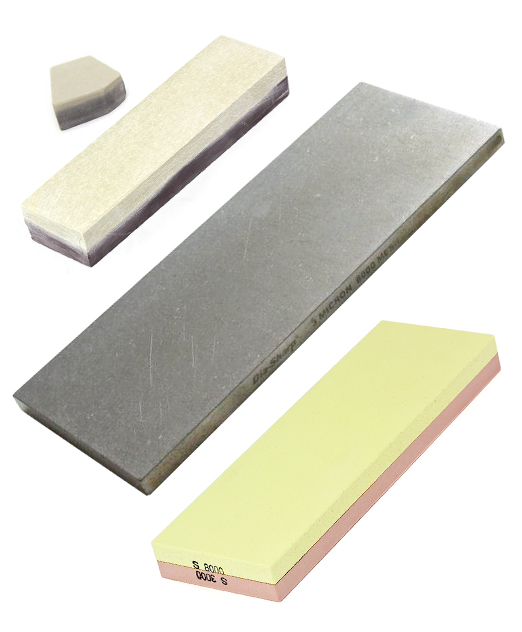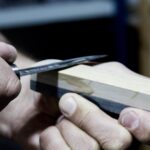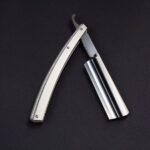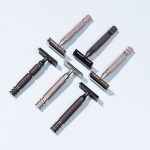When it comes to sharpening a straight razor, men can choose between natural hones and artificial hones. Artificial hones pose a greater variety of choices and greater availability. Unlike natural hones, which are mined from quarries, artificial hones are manufactured so their availability is virtually unlimited. When demand exceeds supply, manufacturers can simply produce more. Of course, supply is not the only way in which artificial hones have the edge on their natural counterparts. Artificial hones are more consistent when it comes to grit. That’s because they can be made to exact specifications. There are several different types of artificial hones, each with its own unique characteristics. Diamond plate hones are metal plates that are covered with a thin layer of real diamonds. Glass hones combine a polished, tempered glass base with a layer of ceramic matrix. Synthetic Japanese Waterstones have a reputation as the best artificial hones available. With the resurgence in popularity of shaving with straight razors, it’s no surprise that people are talking about artificial hones. Users agree that they are easier to use and maintain than natural stones, and they provide a sharper, precision edge.

DMT produces a line of synthetic hones that appeals to new straight razor aficionados because they are the simplest to maintain with no lapping, oiling or soaking. They can be used wet or dry with equal ease and equally astonishing results. People who have reviewed their products agree that they are less messy than using natural or artificial waterstones. However, some reviewers claim it takes time to break in these artificial diamond plate hones, but this is one of the few drawbacks that have been mentioned.
Reviewers have praised the synthetic Naniwa Waterstones for their high cutting speed and ability to sharpen with a minimal amount of water. They also have a smoother feel and produce a shinier mirror finish than other hones. Users rave about the even wear of these stones. They report that the Naniwa Waterstones are not very porous and do not require soaking. However, although soaking is not required, some users say that the 12000 grit hone does benefit from soaking before use, but it is an individual preference. Even though lapping is necessary, some users report that it is needed infrequently at best.
Shapton sharpening stones are very well known among users of artificial hones. They combine a tempered glass base with a ceramic matrix for a hone that is thinner than its competitors. However, reviewers say not to be tricked by its size. The Shapton hones have a reputation for outlasting other hones, even at greater thicknesses. Like most artificial hones, these do not need to be soaked. Users recommend spraying water on the surface before use. Opinions on these stones are divided. While some users are dedicated to the Shapton artificial hones, others claim that they are harsh compared to some of the other available brands.




